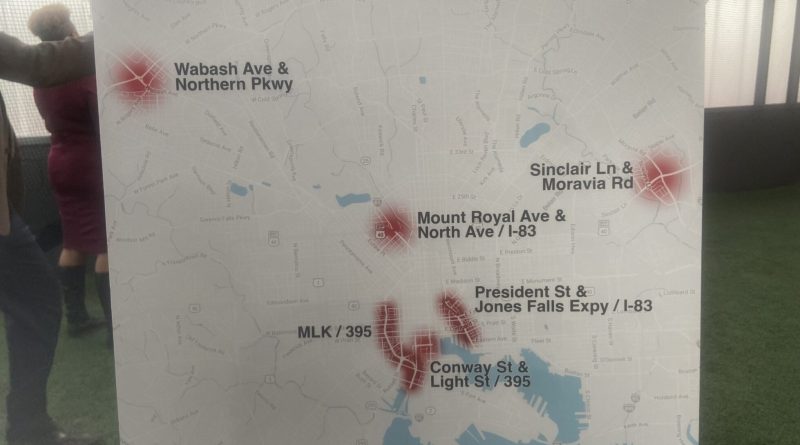Baltimore unveils plan for controversial squeegee workers
By TIMOTHY DASHIELL
BALTIMORE— Baltimore City officials announced a multi-tiered plan on Thursday aimed at addressing ongoing issues with squeegee workers in the city, ones that have involved the shooting death of one motorists and the attempted murder of two squeegee workers.
The plan includes the enforcement of anti-panhandling ordinances in several designated high-traffic zones early next year as part of a plan rolled out by the city’s Squeegee Collaborative.
A second measure recommended by the collective included the provision of up to a year of financial support for squeegee workers who enter workforce education, training and entrepreneurial programs. Conditions specify that the worker must stay enrolled in the program for the entire year and commit to stop squeegeeing.
“Achievable solutions were finally brought to the table,” Baltimore Mayor Brandon Scott said. “The very people so many people want off the street are able to get the support they need.”
Squeegee workers have been a contentious issue in Baltimore for more than three decades. The workers gather on busy Baltimore street corners and offer to clean motorists’ windows during traffic stops in exchange for money.
Some view them as ambitious youth, some as young as 10, with a creative way to earn money. Others see them as a nuisance, clogging traffic and at times threatening motorists who decline their services.
Tensions were pushed to the flashpoint following the July 7 murder of Timothy Reynolds.
Reynolds , 48, was shot and killed at the corner of East Conway and Light streets by a 15-year-old squeegee worker after, police say, Reynolds attacked the kids with a baseball bat following a confrontation.
The squeegee worker was arrested and charged with first- and second-degree murder as well as assault and gun-related charges. His legal team rejected a plea deal in October that would have given him a 60-year prison sentence.
Reyonalds’ family is suing Baltimore, claiming that the city’s failure to stop illegal behavior put Reynolds in danger.
The location of Reynolds’s murder falls within one of the proposed anti-panhandling areas.
Additionally, a Baltimore man was charged in October with two counts of attempted murder after, police say, he shot two squeegee workers in May while looking for the workers he believed scammed his mother of over $2,000 using Cash App.
Jason Williams, a Baltimore middle school teacher, said the squeegee workers are being painted with too broad a brush.
“Some of these workers are kids just trying to get enough money to eat for the day,” Williams said in an interview with Capital News Service. “Not every squeegee worker is the same.”
Williams said many of his students use squeegee work as a summer job. He also has students who miss days at school to work on city streets to make money for them and their families, he said.
“These workers are just like everyone else, just out here trying to do what they can to survive,” he said.
Scott created the Squeegee Collaborative in July, shortly after Reynolds was killed. The group includes a collection of youth, business leaders, community members and elected officials. Their plan was developed over several meetings between its members.
Scott and the newly-elected Baltimore City State’s Attorney, Ivan Bates, have been on opposite sides of the issue.
Scott has said what squeegee workers do is considered panhandling, which is protected free speech under a U.S. Supreme Court ruling.
Bates has said the workers are breaking the law, and he has no problem with handing out citations.
“To me, there’s a difference between panhandling, holding a sign very quietly in an area, not going in and out of traffic,” Bates said during a television interview last month. “Going in and out of traffic is an action, and I believe that action is illegal.”
The state’s incoming governor, Wes Moore, so far has not taken a stance on what could ameliorate the situation.
“We need to be able to ensure that we get kids off the corners, because they’re not safe,” Moore said in an interview on MSNBC. “We know you cannot criminalize poverty.”
Bates and Baltimore City Police Department Commissioner Michael Harrison were part of the team that created the plan, Scott said . Bates, he said, has signed off on the effort.
Bates was not present at Thursday’s press conference.

Capital News Service is a student-powered news organization run by the University of Maryland Philip Merrill College of Journalism. With bureaus in Annapolis and Washington run by professional journalists with decades of experience, they deliver news in multiple formats via partner news organizations and a destination Website.

